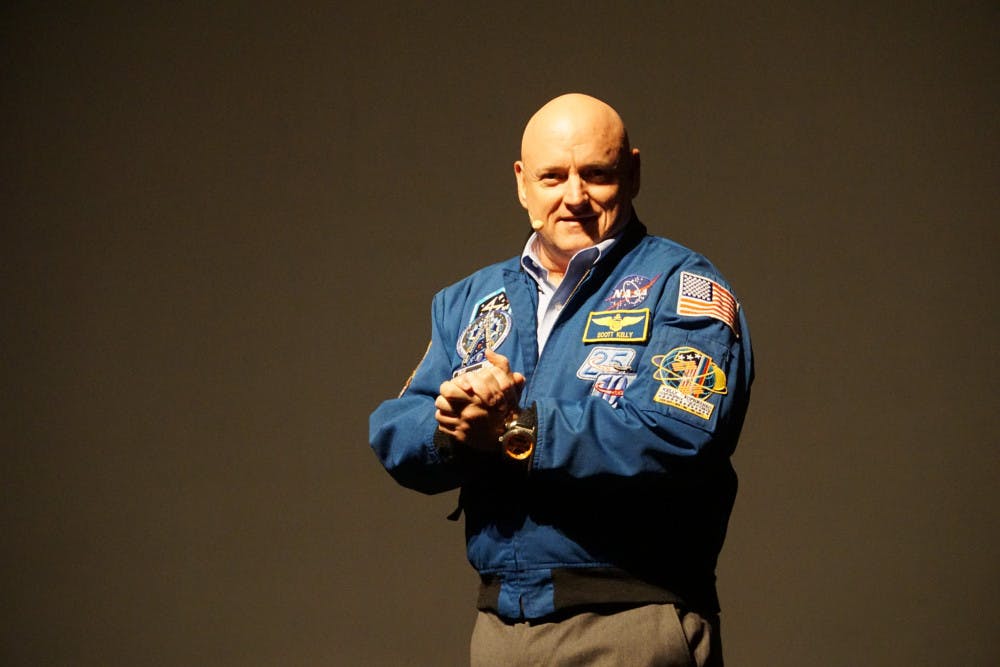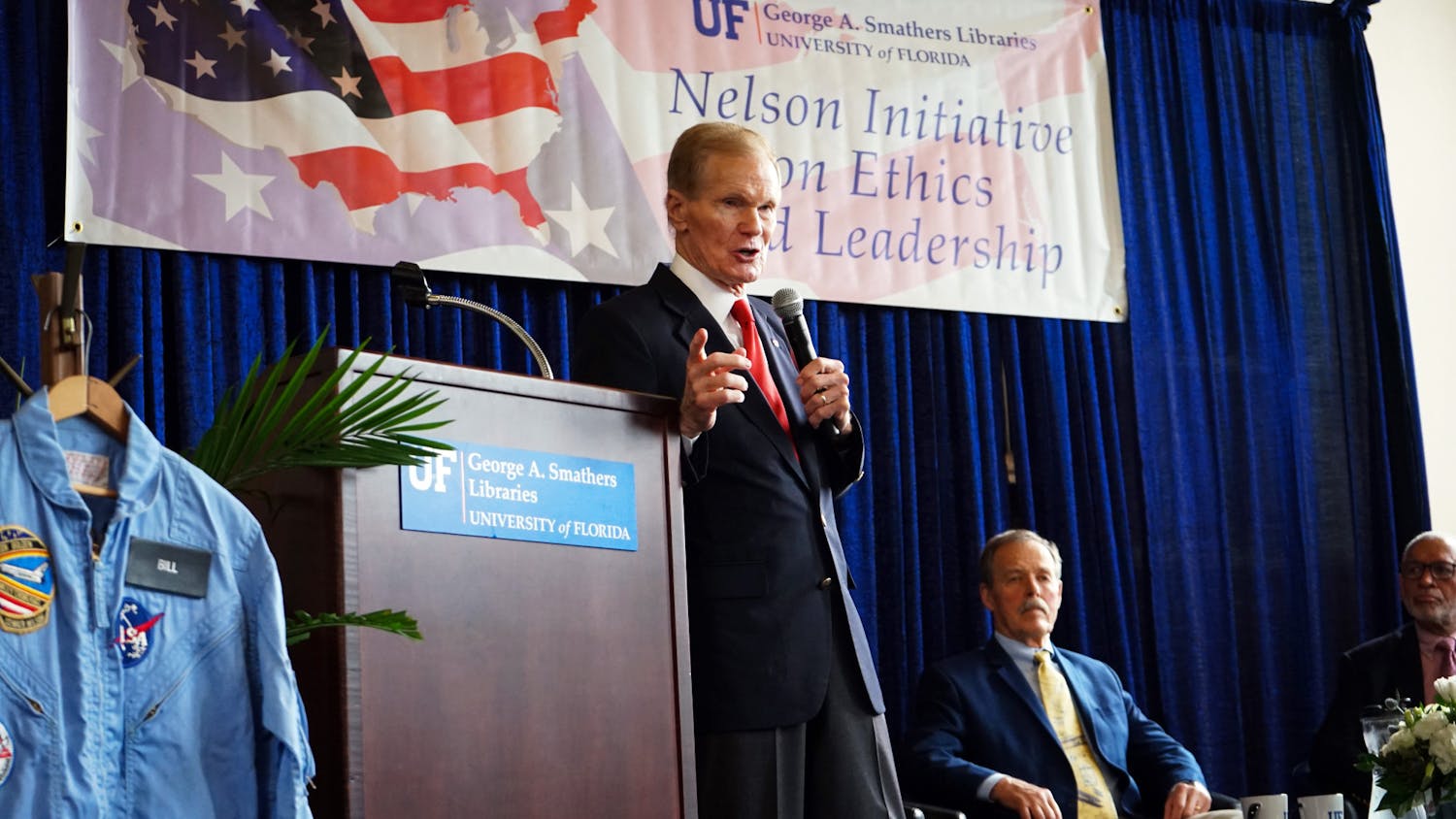After Capt. Scott Kelly took the stage at the Phillips Center for the Performing Arts on Monday, he kept the audience laughing all night.
“It’s great to be here,” he said. “It’s actually great to be anywhere with gravity.”
Kelly, 52, the first American astronaut to spend a year in space, spoke to a full crowd about how he began working for NASA and the hardest year he spent in outer space.
Growing up, Kelly said he wasn’t a good student, and he thinks he would be labeled as having attention deficit disorder today. When it came to applying for college, he told the audience he accidentally applied to the University of Maryland, Baltimore County.
A trip to the school’s bookstore led him to finding a book about test pilots who went on to become astronauts, he said.
“I decided right then and there I would try to be like these guys,” he said. “It was the spark that I needed.”
Kelly transferred schools and started setting small, achievable goals for himself. He earned his bachelor’s from the State University of New York and a master's degree from the University of Tennessee.
In 1995, his twin brother applied to interview to be an astronaut. Kelly didn’t want to apply himself until NASA called him.
“I didn’t really think I was qualified,” he said. “I really didn’t think I had the academic background.”
But eventually, Kelly learned to operate the nearly 2,000 switches and circuit breakers on the space shuttle, he said. When he went into space for the first time, he was so focused on operating the shuttle, he forgot to look out the window, he said.
“‘What the hell is that?’” he remembers telling his commander when he finally did look out to see the sunrise. It was the brilliant blue of the Earth that caught his eye.
“It was the most beautiful thing I’ve seen in my life, and I knew I would never see anything that beautiful again,” he said.
But starting in March 2015, he spent the hardest year of his life in space.
“When you wake up you’re at work, when you go to sleep, you’re at work,” said Kelly, adding that spending a year without gravity has significant negative effects on the body.
Kelly has spent over 520 days in space. Over that time, he’s learned to appreciate Earth’s atmosphere and environment.
“I learned to be more sympathetic about what goes on on planet Earth and how we treat one another,” he said.
Dylan Blecher, 18, said it was a huge honor to listen to Kelly speak. Learning how the retired astronaut got his start, despite his struggle as a student, was the UF exploratory freshman’s favorite part.
“It’s never too late,” he said. “This is like a perfect example of that.”
Captain Scott Kelly






